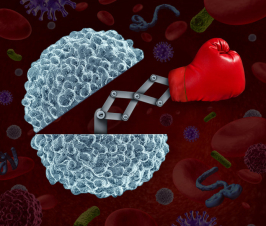 There are many ways we can interpret, and act, on self-love. Sometimes our choices seem to help our emotional or mental state, but could work against our bodies physically; For example, indulging in comfort foods, or sweets when we’re feeling low. While other choices and actions may seem more challenging than they’re worth, you are actually setting yourself up for better health and well-being in the long run; like committing to regular physical activity, or going to bed earlier.
There are many ways we can interpret, and act, on self-love. Sometimes our choices seem to help our emotional or mental state, but could work against our bodies physically; For example, indulging in comfort foods, or sweets when we’re feeling low. While other choices and actions may seem more challenging than they’re worth, you are actually setting yourself up for better health and well-being in the long run; like committing to regular physical activity, or going to bed earlier.
Choices contribute to your body’s state of health
All of these choices and actions contribute to your body’s state of health and well-being. This isn’t about shaming anyone for their choices or how they look. This is both about how we feel and how we are influencing our long-term health – your life.
Being your own parent
I equate this to being your own parent. Be tough when you need to, and put yourself back in control. Having respect for your body and that of your potential future generations. That is self-love.
Looking good doesn’t measure up to feeling good
Throughout this journey the point isn’t to lose weight to get skinny or look really good. Looking good doesn’t mean anything if you’re not in good health. The looking good part is a bonus, and even then, it’s not a textbook body shape or size. It’s just the best version of you.
We only get one body in this life
I’ve said this before, but we only get one body in this life. It’s ours to protect, to nourish, to grow with. It’s ours to experience the world with. It is your personal communication device, your library of knowledge, your transportation, and provider of emotional range, (among many other things, including creating human life).
Here are 5 practices of self-love to improve your health and body composition:
1) Avoid using food for comfort or boredom
Food is fuel. It nourishes your body; Provides vitamins and minerals, fats and fiber, proteins and amino acids. When we use food for emotional support, it’s typically because we’re missing something. Cravings for sweets and sugar typically mean the body is seeking serotonin. Cravings for rewarding foods like chocolate and wine may mean the body is looking for a dopamine surge. But we feel these things as true emotions and some have been “programmed” to run to food for comfort.
Those signals are coming from your gut and your brain. Remember, our gut bacteria is practically wired into our nervous system. They can produce neurotransmitters like serotonin and GABA that will send a signal to your brain to tell you to eat more.1
Here are a few suggestions to promote a healthier relationship with food:
- Before grabbing that snack, ask yourself Am I hungry?Or, Am I bored?Or,Do I need comfort? Recognize when and why you’re eating. Eat when you are truly hungry.
- Eat slowly and savor each bite. Even if you do decide to make a less healthy choice. Avoid scarfing down food which can hinder digestion even more.
- Create new comfort measures. Brew a cup of herbal tea, or warm water with lemon. Call on a friend, or get a hug from someone you love. Journaling and documenting your thoughts and feelings can help you to recognize food-binging triggers.
- Pick up a hobby or activity that distracts you.
- Set a time each evening to stop eating. Ideally that’s about 3 hours before bedtime; though water and herbal teas can still be consumed.
2) Get more sleep
On top of this we have signals that tell us when we’re feeling hungry and when we feel full, and these are controlled by hormones (specifically ghrelin and leptin). Both duration and quality of sleep can affect the secretion of these hormones. Getting less than 7 hours per night of sleep has been shown to increase feelings of hunger and led to a 6% increase in obesity.2,3 This occurs regardless of calories consumed.
3) Make good choices. Give yourself only Premium fuel
For the most part, you can control what you put into your body. You feed yourself. You have the ability to grocery shop (in-store or delivered). You determine the restaurants where you will eat. This is all within your power. Program your mind that you will not eat at fast-food restaurants, and instead treat your body like a garden. Feed it proper food so that it flourishes. Avoid dumping substances in your soil that don’t help you to grow.
Why is this so critical?
Foods that give us pleasure (typically grain-carbohydrates, sugary, deep-fried, and processed foods) provide just that: momentary taste and mouth pleasure. It’s fleeting and your body now has to work for HOURS to process, digest, and try to weed through what you just threw into your gut. This can lead to insulin dysregulation, overeating, fatigue, digestive concerns, and further may lead to immune and auto-immune problems.
Instead, focus on nutrient-dense foods. Our healthy fats, proteins and plant fibers. When at a restaurant, pick the best dish for your health; or avoid those that can sabotage you like breads/buns, pizzas, pastas (especially with cream sauces), deep-fried foods.
These same principles apply to food in your home. Clean out your kitchen and remove all junk foods.
4) Manage stress
This is probably one of the tougher things to change because stress is often (but not always) from an external source. For example, work pressure, busy lives at home, child care, etc. Small bouts of stress are good, as long as the body can recover. But if you feel like you’re drowning and the pressure is continuous, it’s time to re-evaluate and seek help. Chronic stress sends signals to the brain which in turn influence hormonal output. Potential results include down-regulation of sex hormones (women often lose their periods temporarily) and an increase in cortisol secretion.
5) Get strong(er)!
Changing your body composition can’t be done with diet alone, or with exercise alone. We need both. We need sufficient protein in our diet to help with muscle repair. We need water and creatine to hydrate that muscle so that we don’t fade during activity. And we also need to train: strength training. Gym memberships are not necessary, but the goal is to lift heavy things… like your own body weight!
Muscle mass doesn’t mean massive bulking
Increasing muscle mass doesn’t require mass bulking. It refers to increasing your strength. The ability to carry groceries, school books, luggage, open jars, baby-wearing, gardening, tending to the home… strength isn’t about vanity. It’s about increasing your quality of life, your balance (literal and figurative) and preventing falls and injuries later in life.
Building and maintaining muscle mass as our bodies age
Maintaining and building muscle mass can be more difficult as we age as our bodies put less energy into maintaining muscle tissue. Combined with a diet lower in protein, it’s no wonder why many people feel fatigued, weaker, and more tired as they age.
Make no mistake
Make no mistake, this isn’t the case for all women, but we can get caught if we don’t try to improve both physical activity and protein intake. This is even true after physical injuries as we age. It begins to take longer to heal, or it takes longer to get to the same physical status as before the injury.
When it comes to exercise I’m a huge fan of choosing activities that are fun and challenging. Yoga is a great starting point for those at all abilities because each aspect can be modified. As well, the important principles of yoga can be translated to help your health in other areas.
For example:
Breathing: Yogic breathing teaches you to belly-breathe, and avoid short, shallow breaths. Breathing exercises are also employed for relieving stress and anxiety.
Holding and maintaining proper posture: Practicing proper posture helps you protect your back, shoulders and neck while you work on core strength. It can decrease back pain and reduce tension headaches.
Using your own body weight: You don’t need free weights or barbells. Literally use your own body weight as a weight. Some recommendations I’ve made include holding a plank or modified plank position for 30 seconds, or do slow, controlled push-ups/push-aways against a wall.
Love your body and let it love you
Love your body. Let it move. Stretch it out. Be gentle and kind to yourself. Nourish it with real, protein- and vegetable-rich, unprocessed food. Make good choices for you. None of this is easy, but all of it has the potential of transforming you into a stronger, healthier you.
More articles by Dr Zadek
References:
- O’Mahony, S.M., Clarke, G., Borre, Y.E., Dinan, T.G., and Cryan, J.F. “Serotonin, tryptophan metabolism and the brain-gut-microbiome axis” (2015) Beh Brain Res. 277: 32-48
- St-Onge, M.P. “Sleep-obsesity relation: underlying mechanisms and consequences for treatment” (2017) Obes Rev. Suppl (1): 34-39
- Buxton, O.M., Marcelli, E. “Short and long sleep are positively associated with obesity, diabetes, hypertension, and cardiovascular disease among adults in the United States” (2010) Soc Sci Med. 71:1027
Photo by Avi Richards on Unsplash
 Dr. Sarah Zadek (King), ND, is a licensed Naturopathic Doctor, graduating from the Canadian College of Naturopathic Medicine in 2014. Prior to completing her medical studies, she attended Nipissing University where she received her Honors Bachelor of Science in Biology. Sarah has a passion for women’s health and is a birth doula in Durham and Toronto Region. She treats a wide variety of health conditions including menstrual disorders and hormone balancing, fertility, prenatal care, digestive concerns, skincare and mental health/anxiety. Outside the office Sarah is an avid runner with a love of the GTA’s best forest trails. She also continues to improve her yoga practice and teaches breath work as part of stress management counselling to her patients.
Dr. Sarah Zadek (King), ND, is a licensed Naturopathic Doctor, graduating from the Canadian College of Naturopathic Medicine in 2014. Prior to completing her medical studies, she attended Nipissing University where she received her Honors Bachelor of Science in Biology. Sarah has a passion for women’s health and is a birth doula in Durham and Toronto Region. She treats a wide variety of health conditions including menstrual disorders and hormone balancing, fertility, prenatal care, digestive concerns, skincare and mental health/anxiety. Outside the office Sarah is an avid runner with a love of the GTA’s best forest trails. She also continues to improve her yoga practice and teaches breath work as part of stress management counselling to her patients.

















